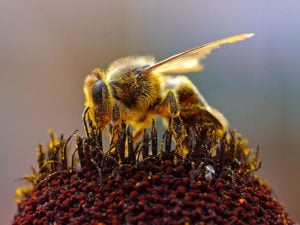 A report issued earlier this year from the Property and Environment Research Center shows how capitalism helped save honey bees (and thus related markets) from “Colony Collapse Disorder” (CCD), a problem sometimes hysterically reported by the media.
A report issued earlier this year from the Property and Environment Research Center shows how capitalism helped save honey bees (and thus related markets) from “Colony Collapse Disorder” (CCD), a problem sometimes hysterically reported by the media.
The paper’s authors, agricultural economists Randal R. Rucker and Walter N. Thurman, conclude:
The overblown response to CCD in the media stems from a failure to appreciate the resilience of markets in accommodating shocks of various sorts. . . .
Our examination of the operation of pollination markets leads us to conclude that beekeepers are savvy entrepreneurs who use their wealth of knowledge of the particular circumstances of time and place . . . to adapt quickly to changing market conditions. Not only was there not a failure of bee-related markets, but they adapted quickly and effectively to the changes induced by the appearance of Colony Collapse Disorder.
In contrast to the doomsday scenarios used to describe CCD at its outset, the workings of the forces of competition to accommodate bee disease make less compelling headlines. The receding of CCD from the national consciousness will be noted by few, but the resilience and adaptation to bee disease by the beekeeping industry is a story worth noting—and savoring—along with one’s breakfast of honey on toast with pollinated fruit.
It is indeed a story worth noting—not because such capitalist success stories are rare, but because they are so common that many take them for granted. Capitalism, the political-economic system of individual rights, leaves individuals free to act on their own judgment, to produce wealth and keep what they earn, and to associate voluntarily with others to accomplish their goals. And, to the extent that individuals are free, smart and innovative people address problems—whether concerning health care, transportation, housing, or bee disease—with the full power of rational thought.
Thank you, capitalist beekeepers, for your productive achievements! And thank you, Rucker and Thurman, for sharing this delightful story of one of capitalism’s innumerable successes.
Like this post? Join our mailing list to receive our weekly digest. And for in-depth commentary from an Objectivist perspective, subscribe to our quarterly journal, The Objective Standard.
Related:
Image: Wikimedia Commons


![[TEST] The Objective Standard](https://test.theobjectivestandard.com/wp-content/uploads/2017/10/logo.png)









